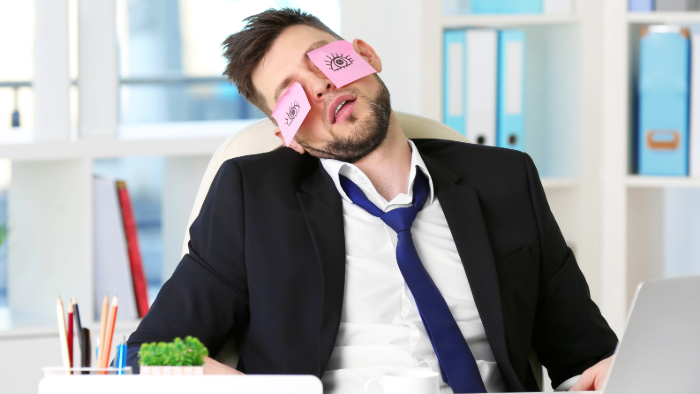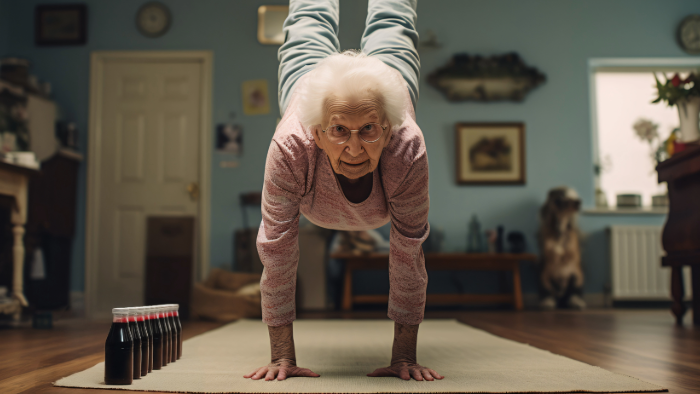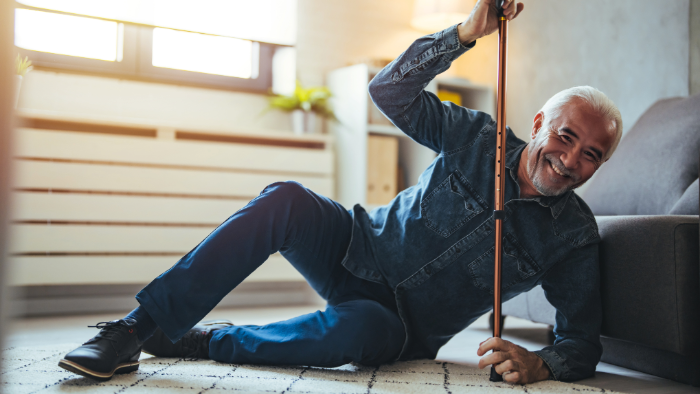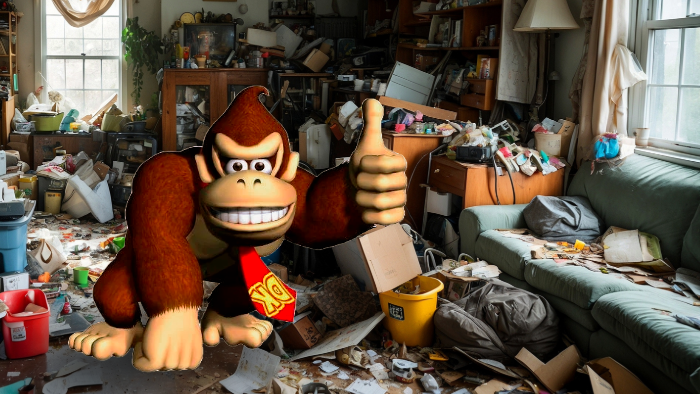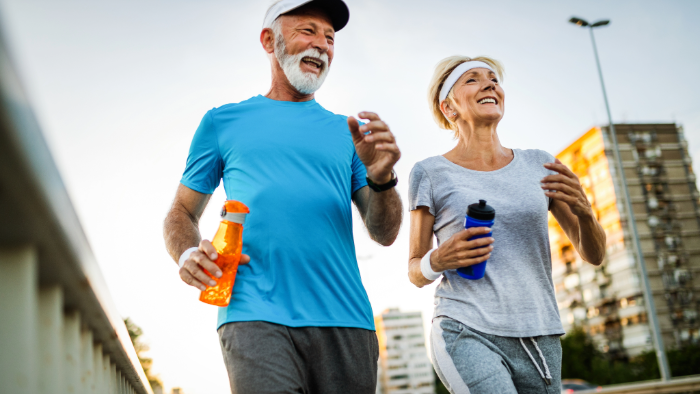How to Ruin Your Balance, Fall More Often, and Age Like a Rotten Banana: A Totally Irresponsibly-Responsible Guide
This Article is part of the SoF Quick Read Series: Trimmed-down, real-life strategy guides for handling everyday balance moments. Lighter reads. Still grounded in science. Always worth your time, and linked to deeper articles for when the itch to learn arises.
Essential Points:
Sleep less, sit more, and skip the gym - because nothing screams “ready to fall” like exhaustion and muscle atrophy.
Ignore nutrition, avoid doctors, and live like you’re invincible - the perfect recipe for brittle bones, dizziness, and epic wipeouts.
Surround yourself with chaos and overconfidence - tripping hazards and cocky attitudes make falling more dramatic (and painful).
Disclaimer: Please don’t actually follow this advice unless your life goal is to become a cautionary tale.
The Path to Falling Fantastically Bad
Welcome, aspiring balance-wrecker! Tired of living a healthy, independent life? Want to hit the ground more…literally? You’ve come to the right place. I’m done writing scientifically backed articles about, “fall prevention tips for older adults” or “balance training for seniors”. Snooze-fest, am I right?
It’s time I take SoF into a new era!
Let me show you how to ignore everything science, experience, and basic common sense tell us about staying upright and aging well. After all, what kind of lame-o actually wants to live a long, healthy life anyway? Not us!!
In this rebellious guide, I’ll walk you through the perfect steps to ruin your balance, make sure you fall more often, and completely sabotage any chance of enjoying those pesky “golden years.” Say goodbye to stability and hello to faceplants and fractured pride. Let’s get started.
1. Sleep is for the Mentally Weak - Aim for 4 Hours or Less
Who needs rest and recovery when you can run on fumes, pure caffeine, and an unshakable sense of denial? Stay up late scrolling TikTok or rewatching the same three shows from 2012. Bonus points for partaking in revenge bedtime procrastination. Don’t know what that is? Doesn’t matter. If you stay up just to avoid going to bed, congrats, you’re doing it.
Sleep is where boring people go to consolidate memories, build muscle, and regulate their nervous system. Yawn. Meanwhile, you’re out here with coordination that’s gone from “fully functioning adult” to “baby deer on ice.” And we all know what happened to Bambi’s mom... except in your case, it won’t be a hunter, it’ll be your decision to skip sleep and test gravity head-on.
Who wants fast reflexes, clear thinking, emotional balance, or strong, injury-resistant muscles anyway? Not you! Keep living like a 20-year-old sneaking into bars on two hours of shut-eye. Don’t be mentally weak; be awake, anxious, and aggressively clumsy.
Lesson: Sleep is essential for motor control, cognitive function, and physical recovery. Skimp on it, and you're setting yourself up for instability, in every sense of the word. Learn more about how sleep keeps you balanced here.
2. Exercise? Overrated. Sit as Much as Possible
Muscles, joints, and bones are like houseplants - they thrive on neglect and artificial light, right? Your body will totally reward you for staying seated 97% of the day, especially if your couch has perfectly contoured itself to your shape over the last few years.
The couch potato gets a bad rap, but honestly? Potatoes are a dietary staple. Be a potato. Embrace it. Let your legs forget what walking feels like. Exercise only leads to soreness, increased energy, better posture, improved balance, and (gag) confidence. Who wants that?
Skip the gym. Turn off those online workouts. Crank up your TV volume and settle in for season 5 of Stranger Things... even if you're still on episode 2 of season 1. It’s a rewatch marathon, baby! After all, sleep is for the mentally weak, and your muscles don’t want to be physically strong. They want to atrophy in peace.
Lesson: Strength, mobility, and balance training are key to preventing falls, especially as you age. But hey, no pain, no gain...no balance either. Do yourself a favor and learn how to make your own workout program here.
3. Confidence is King - Never Question Your Balance
Wobbling? Tripping? That’s just gravity testing your dominance. You’re not losing balance, you’re fighting to assert authority over the Earth’s measly attempts to bring you to your knees. And you don’t admit defeat, even after a broken wrist and three concussions. Never check in with how your balance actually is. Don’t practice, don’t test, don’t even acknowledge the possibility that it might ever decline. Just assume you’re fine. Always.
They say balance starts to go downhill in your 50s. But guess what? My great-great-grandma lived to 180 drinking nothing but Cherry Coke and managed to tightrope walk across the family living room well into her 170s. If she can do it, I can too. I’m a genetic freak. A balance prodigy. Everyone else? Weak sauce.
Just because every single older adult in history eventually experiences balance decline doesn’t mean you will. You’re different. Special. Untouchable. What could possibly go wrong?
Lesson: Awareness and regular testing are crucial for recognizing early balance issues before they become dangerous. Balance decline can begin as early as your 50s, unless you're a fictional superhero... or a delusional optimist. Explore the basic balance systems here and start your journey to better stability.
4. Falling is for Losers - Never Learn How to Do It
Why waste time learning to fall when you could go full ragdoll mode at the slightest misstep? Learning to fall safely is for nerds with “hip integrity” and “spinal alignment.” Not us. We want to go down like a sack of bricks and take a few limbs with us.
Controlled falling? Tuck and roll? Please. I want scars from hip replacements so I can make up wild stories about back-alley knife fights. “You should’ve seen the other guy,” I’ll say, as I ice my shattered femur. Wrist broken from falling onto an outstretched hand? That’s a badge of honor, my friend. Break one, get one free.
Forget martial arts fall training. Forget judo rolls. Hit the pavement like your dignity depends on it, and leave it their afterwards.
Lesson: Learning controlled falling techniques significantly reduces injury risk and boosts confidence in real-world scenarios. Knowing how to fall can mean the difference between a bruised ego and a broken hip. Discover the power of falling techniques and Parkour Ukemi here, or some simple strategies to fall safer here.
5. Eat Like a Teenage Gamer - Skip All the Healthy Stuff
If it’s green, it’s garbage. If it’s fresh, it’s suspicious. If it’s deep-fried, sugar-coated, neon-colored, or comes in a bag with a cartoon mascot? Bingo. That’s the food pyramid we really need.
Want brittle bones, weak muscles, and sluggish energy? Easy. Just copy my high school buddy who lived off of Flamin’ Hot Cheetos, Mountain Dew Code Red, and a strict “Taste the Rainbow” Skittles regimen. He peaked at 16. Be like him.
Forget nutrients like calcium, vitamin D, protein, and antioxidants. Who needs strong bones and a functioning brain when you can have cheese dust on your fingers 24/7? Longevity is overrated. You want flavor explosions, not joint lubrication. You want that “snap” in your step - literally, from a stress fracture.
Lesson: Nutrition is foundational to long-term strength, bone density, cognitive health, and fall prevention. Eat like you care about your future, or don’t, and enjoy your brief, brittle ride.
6. Avoid Doctors Like the Plague
Why catch a small problem when you could wait until it becomes a cinematic medical emergency? Life is meant to be lived on the edge, preferably while ignoring every possible sign that something might be off. Vision going blurry? You probably just remembered the ending to The Notebook and got a little misty-eyed. Dizzy spells? You're just spinning because life is exciting. Achy joints? That’s character development. You’re neck popping? That’s just popcorn being made for the front row seats to your insanely awesome life.
Preventative care is for people who want to stay healthy. And who has time for that? Regular checkups, physical therapy referrals, medication reviews…yawn. Just crawl into bed when your hip flares up and vomit from a mix of pain, dehydration, and that expired sushi you ate today but ordered eight days ago. That’s the grown-up way.
Lesson: Regular medical checkups can catch vision problems, neurological issues, and side effects of medications that all impact your balance and safety. Ignoring these doesn’t make you brave, it makes you vulnerable. Learn more about vision here, cognitive health and fall risk here, and medications that can increase fall risk here.
7. You’re Invincible - Act Accordingly
Who needs handrails? They’re just there to ruin the aesthetic. Take stairs two at a time like a gazelle hopped up on espresso. Three at a time if you aren’t a pansy. Always carry a teetering stack of laundry, Amazon boxes, and your cell phone - while texting.
Real heroes don’t look where they’re walking. They trust the path.
Your bones? Reinforced with adamantium. Never heard of that metal? Refer to tip 2 and read a comic book, you’re succeeding in life too much. Your reflexes? Lightning fast. You could fall down a mountain and somehow land on your feet with a smoothie still in hand. Impressive, like a cat. Just ignore that pesky hospital bill from the last time you tripped on your shoelace and broke your nose. You were probably dehydrated. Or Mercury was in retrograde. Not your fault.
Lesson: Overconfidence leads to poor risk assessment and dangerous behaviors. Acting like you're invincible is a surefire way to end up proving you're not. The exact opposite is true as well. A fear of falling can increase your risk of falling again. Learn how to overcome this challenge in this article here.
Bonus Tip: Surround Yourself with Chaos
Your home should feel like a level from Donkey Kong. That’s how you build character. Trip wires…er, I mean, electrical cords, should snake across your living room like jungle vines. That rug your heel always catches on? It gives the place charm. And that dim lighting in the hallway? That’s ambiance, baby. Who needs to see where they’re going? Not us, we use echo location.
Spring cleaning is for minimalists. Real legends keep a few hundred magazines on the floor “just in case,” that recipe from the February 1996 Taste of Home finally comes in handy. And never, ever, move the furniture, even if it's created a maze only you understand. That’s how you keep burglars out.
Lesson: Your environment can either protect you or sabotage you. Clean, well-lit, clutter-free spaces drastically reduce the risk of falls, especially for older adults. Chaos may be fun in theory, but stability is as sexy as a life partner with a 401k. Learn about adapting your home to be more safe in this article here.
Final Thoughts: From Disaster to Prevention
Okay, real talk.
I just needed a fun break from my usual research and reference heavy articles. Most of my jokes were horrible, but I appreciate you giving me pity and reading to the end. Thanks for indulging my creative writing adventure.
If any of the behaviors in this article sound a little too familiar…it might be time for a rethink. (We’re looking at you, “I-don’t-need-vegetables” guy, gal, Brent’s dad.)
Aging well and staying upright isn’t magic. It’s not genetics. It’s not a mysterious force gifted to a select few by the Balance Gods. It’s about awareness, consistency, and effort. The habits you build now are the ones your future body will thank you (or punish you) for.
I work with people every day between the ages of 60 and 100. Many of them followed all the “advice” above, and that's exactly why they need my help now. But here’s the thing: you don’t have to follow the same path. You can change the story of your future. Today.
Because health in your 70s, 80s, and 90s isn’t given. It’s earned.
So…which version of yourself are you living for?
If you're ready to build habits that keep you balanced and thriving, while avoiding becoming a rotten bruised banana in your older years, check out my balance program here: SoF Balance Program. Trust me, if you invest just a little bit now, it will provide you with decades of freedom in the future.
References
Pritt. 2025. References are for nerds who read and believe in science. Journal of Terrible Health. 62(11):1812–1817.



